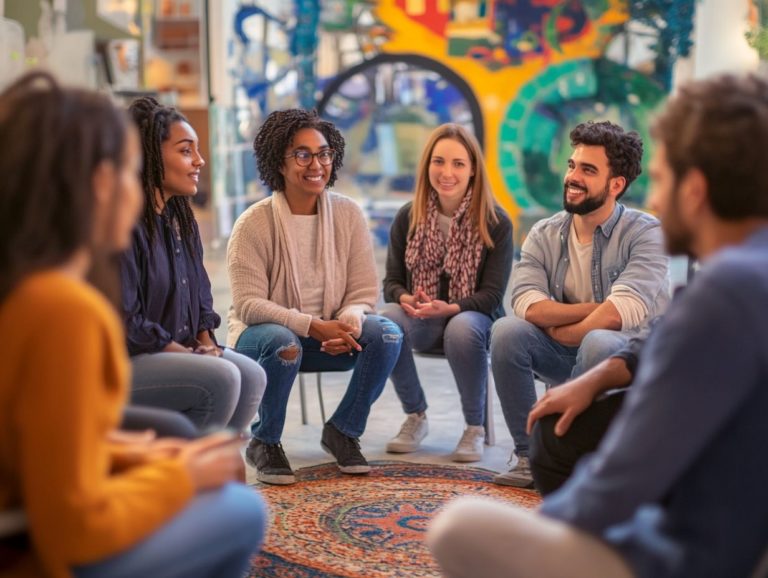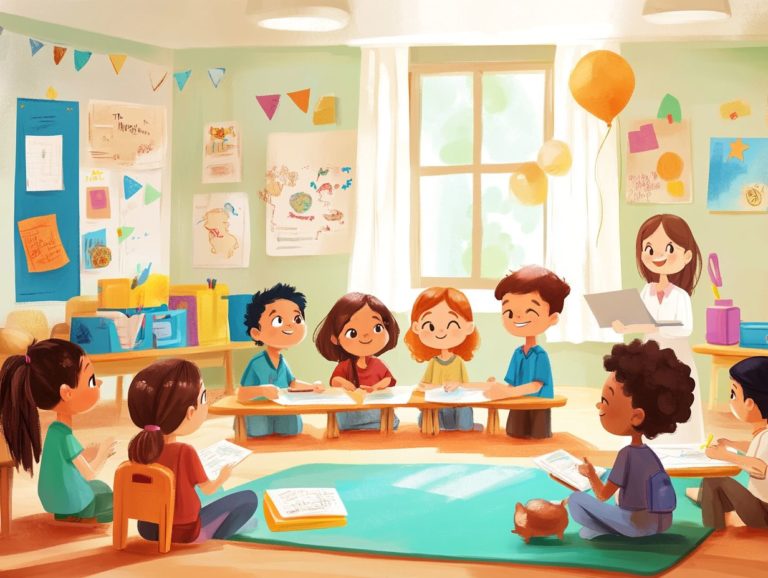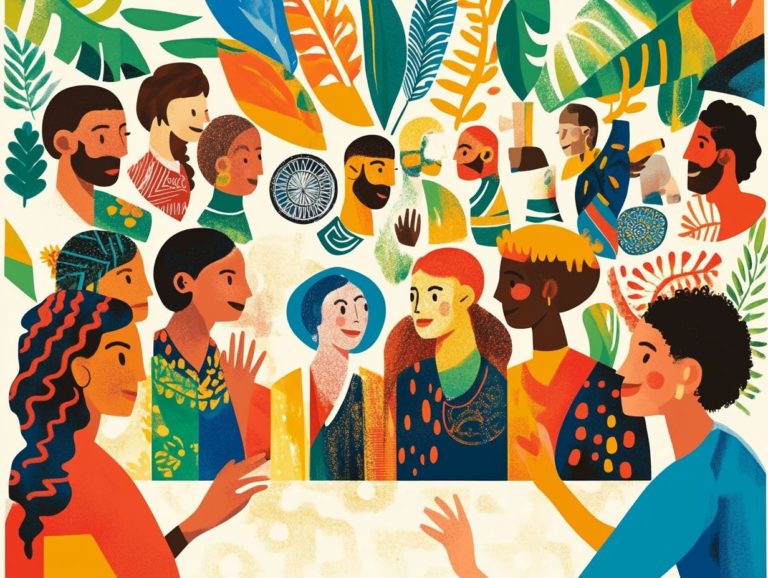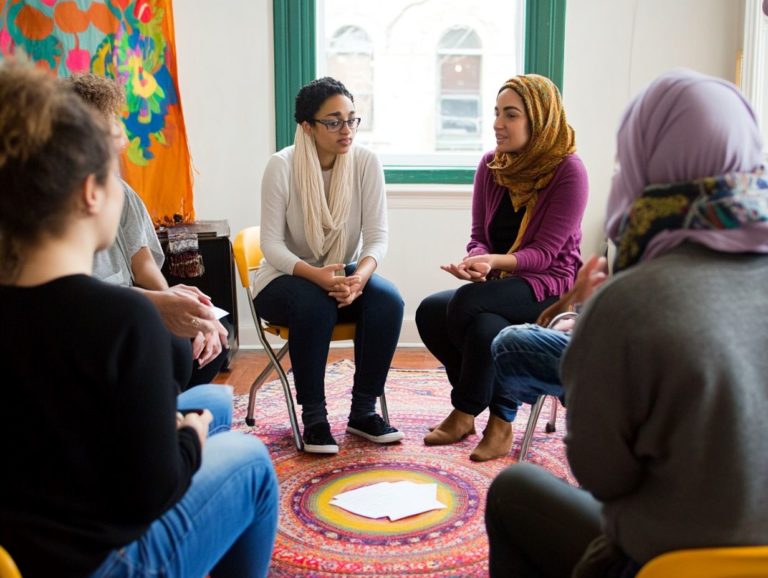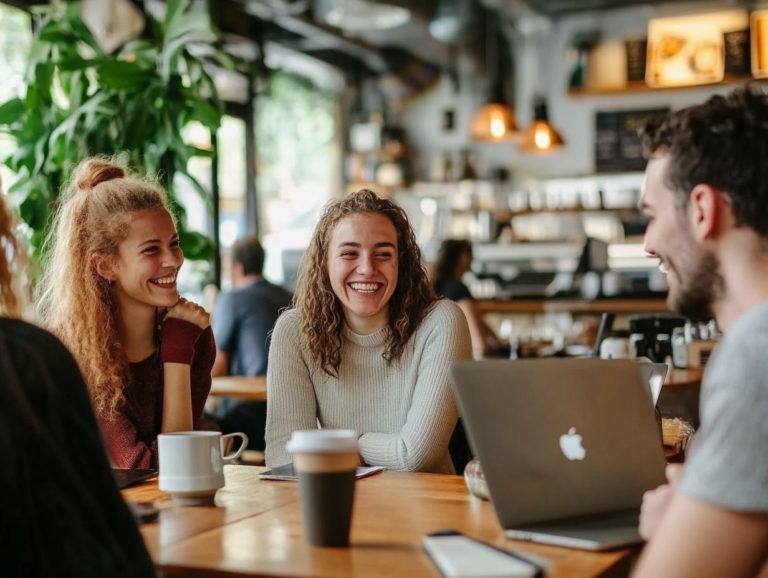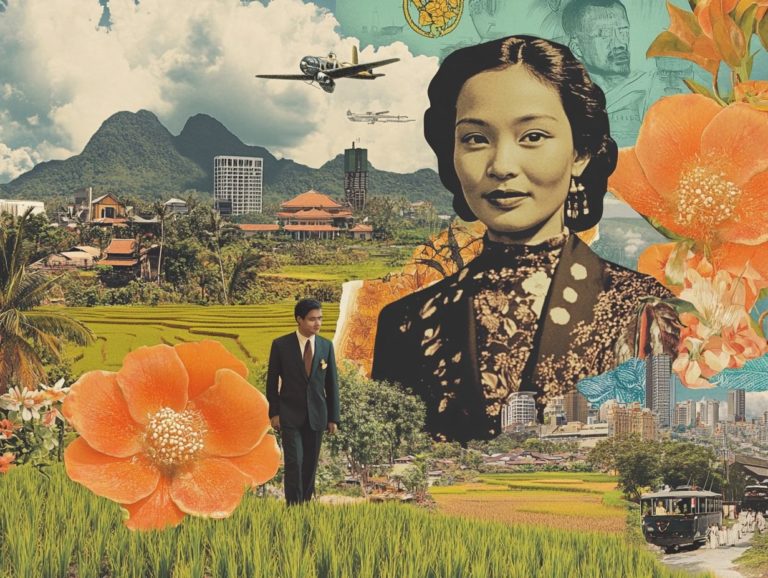5 Activities to Enhance Your Cultural Experience
Experiencing a new culture transcends merely visiting landmarks; it s about immersing yourself in the heart and soul of the community.
From local festivals to traditional cuisine, each interaction presents an opportunity to uncover the vibrant tapestry of customs and practices that define a place.
This article showcases five engaging activities designed to deepen your cultural experience.
It also explores the benefits of immersion, offers tips for respectful engagement, and suggests ways to document your journey.
Prepare to enrich your travels in ways you never imagined!
Contents
- Key Takeaways:
- 1. Attend Local Festivals and Events
- 2. Participate in Traditional Cultural Activities
- 3. Try Local Cuisine
- 4. Visit Museums and Historical Sites
- 5. Volunteer with Local Organizations
- How Can Immersing Yourself in a New Culture Benefit You?
- What Are Some Ways to Respect and Appreciate Other Cultures?
- How Can You Overcome Cultural Barriers and Misunderstandings?
- What Are Some Common Cultural Customs and Practices to Be Aware Of?
- How Can You Document and Share Your Cultural Experience?
- What Are Some Tips for Being a Responsible and Respectful Cultural Traveler?
- Frequently Asked Questions
Key Takeaways:
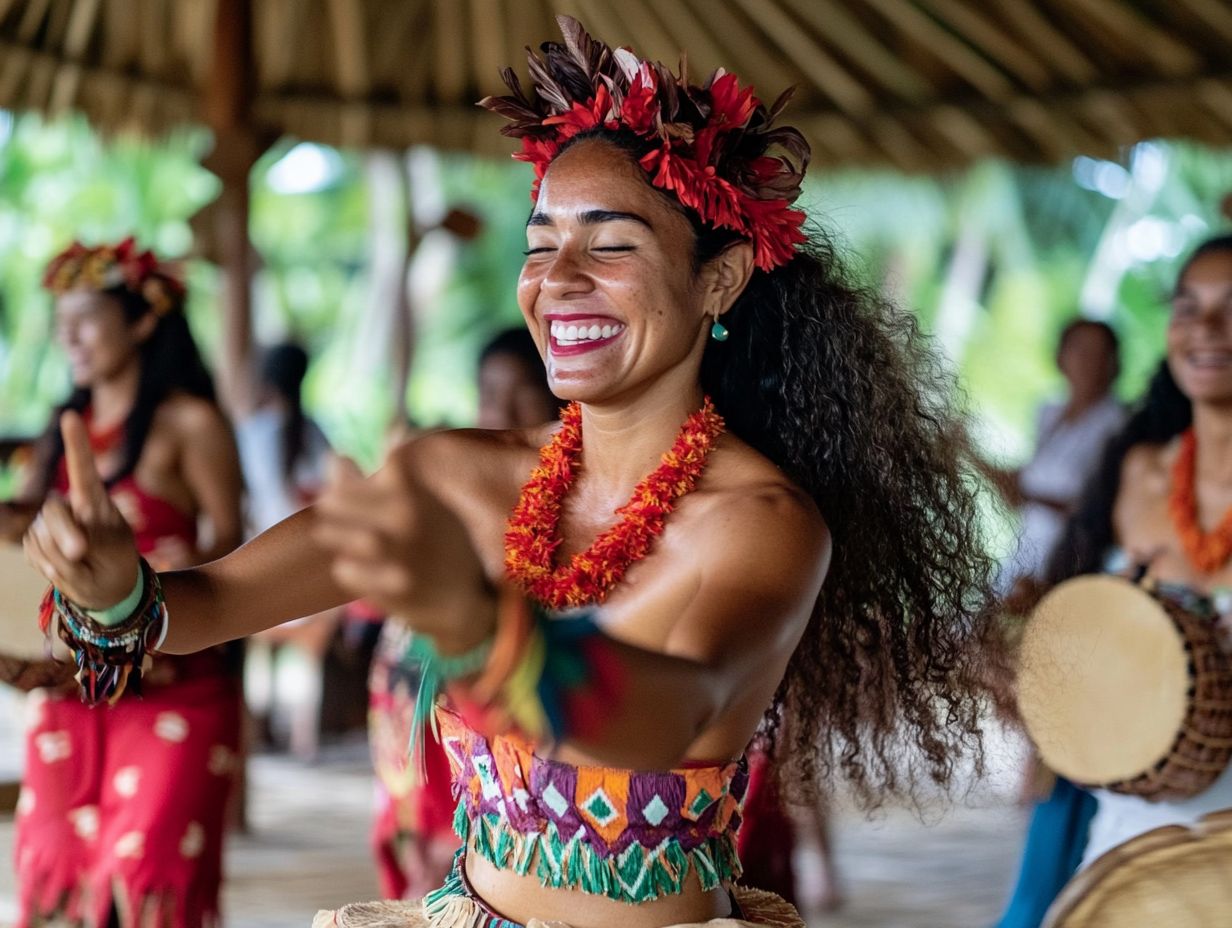
- Immerse yourself in the local culture by attending festivals and events – it’s a great way to experience traditions and connect with the community.
- Participate in traditional activities, such as dance or cooking classes, to learn more about the culture and its customs.
- Expand your palate by trying local cuisine – it’s a delicious way to experience a new culture and appreciate its flavors.
1. Attend Local Festivals and Events
Dive into local festivals for a thrilling experience! Attending local festivals and events offers you a vibrant opportunity to immerse yourself in cultural diversity. This engagement allows you to connect with various traditions, art forms, and community groups that teach about different cultures and nurture worldly people.
These gatherings hold immense significance. They provide not just entertainment but also promote cultural awareness by showcasing the rich tapestry of human experiences. Events like World Culture Day and the CU International Festival reveal the beauty of different heritages, encouraging empathy among attendees.
As you participate, you’ll discover unfamiliar customs, savor diverse cuisines, and experience a myriad of artistic expressions. Exploring ways to celebrate your heritage abroad can deepen your understanding of different cultures and inspire positive behavior.
You may find yourself feeling more connected to your community, fostering a greater inclination to engage in collaborative efforts that uplift and support one another.
2. Participate in Traditional Cultural Activities
Engaging in traditional cultural activities, such as arts and crafts, offers you enriching hands-on experiences that cultivate sensitivity and understanding. For instance, exploring ways to experience local life when traveling can sharpen your critical thinking and empathy towards diverse cultural expressions.
When you dive into the vibrant realms of dance and music, you unlock a profound connection to the rhythms of various cultures. This allows you to appreciate their unique histories and narratives.
Incorporating project-based learning into these artistic pursuits can elevate your learning. Project-based learning involves hands-on projects that enhance your skills. You naturally gain benefits from collaborating on creative projects, enhancing your teamwork and problem-solving abilities.
For instance, as you explore the artistic elements of a specific culture through crafts, you have the opportunity to create meaningful pieces that reflect your newfound understanding. This journey fosters a respectful, inclusive atmosphere that celebrates differences.
Ultimately, this immersive learning approach enriches your skill set and broadens your worldview, helping to nurture a generation that values harmony amidst diversity.
3. Try Local Cuisine
Trying local cuisine is an essential part of your journey into cultural exploration, offering a delightful way to enhance your awareness and gain a rich perspective on the diverse culinary traditions found worldwide.
As you indulge in traditional dishes, you not only savor unique flavors but also uncover the stories that link you to the people behind each meal. Every recipe carries a narrative steeped in history, reflecting the region’s agricultural practices, rituals, and social norms.
Food acts as a bridge that fosters community bonding, where sharing a meal sparks dialogue and understanding between different cultures. This shared experience nurtures empathy, breaking down preconceived notions and allowing you to truly appreciate the beauty of diversity.
Such culinary encounters can ignite your curiosity, encouraging you to seek deeper connections with the stories and histories woven into every bite.
Now, it’s time to plan your next cultural adventure! Share your experiences and insights as you explore the richness of the world around you.
4. Visit Museums and Historical Sites
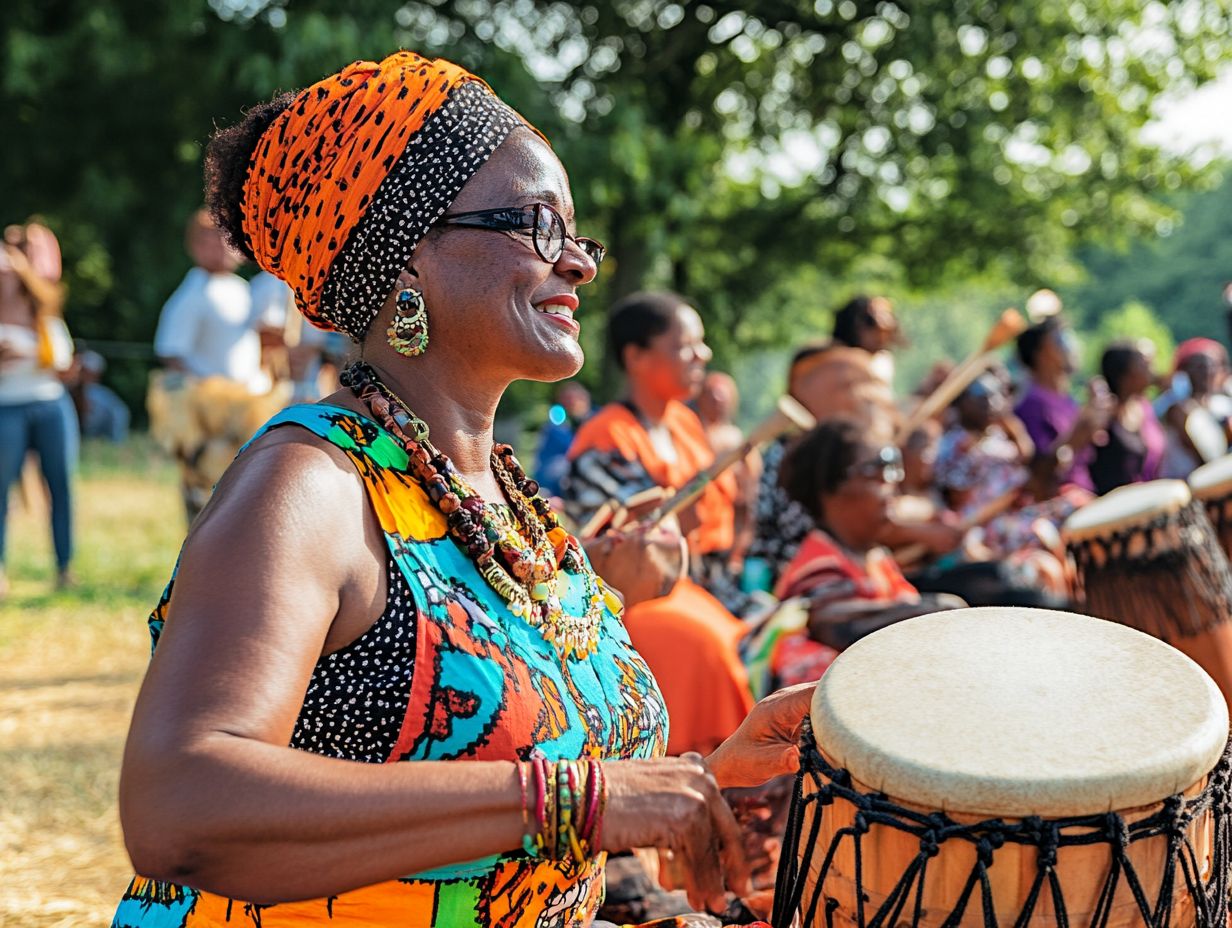
Visiting museums and historical sites gives you a fascinating look into cultural diversity. This enriches your thinking skills and enhances your communication skills as you engage with artifacts and stories from various cultures.
Such experiences not only broaden your perspective but also deepen your appreciation for the complexities of human history. Museums play a crucial role in preserving cultural heritage and invite you to reflect on your identity while fostering discussions that nurture empathy and understanding.
As you navigate through various exhibits, each interaction with the past can spark critical thinking. This leads to meaningful conversations about the impacts of cultural exchanges throughout history, which is essential in cultivating a more informed and respectful global community.
5. Volunteer with Local Organizations
Volunteering with local organizations offers a profound opportunity to enhance community involvement. It cultivates empathy and sensitivity while helping to bridge cultural divides.
Engaging in these activities enriches your personal development and fosters a sense of unity among diverse groups. Consider programs like after-school mentorship with youth organizations or community clean-up events; these initiatives promote inclusivity and bring together individuals from different backgrounds.
Such experiences enable you to develop essential skills like effective communication and teamwork. Whether you re collaborating on a cultural festival or participating in workshops, these moments create lasting connections and foster mutual understanding.
How Can Immersing Yourself in a New Culture Benefit You?
Immersing yourself in a new culture offers a wealth of benefits. It opens doors to enriched cultural experiences that cultivate global citizens like you ones equipped with empathy, critical thinking, and a deeper understanding of the world around them.
These experiences often lead to improved social skills. By engaging with diverse individuals, you form meaningful connections that nurture a genuine sense of community. For example, navigating local customs and traditions enhances your adaptability, enabling you to thrive in unfamiliar environments.
Immersion in different cultural settings boosts cognitive abilities. Learning new languages and traditions sharpens your memory and problem-solving skills. Over time, these lived experiences weave together a rich tapestry of lifelong learning, illuminating your path toward personal growth and forging lasting relationships that transcend geographical borders.
What Are Some Ways to Respect and Appreciate Other Cultures?
Respecting and appreciating other cultures starts with developing cultural awareness and engaging in sensitivity training (a method to improve awareness of different cultures). This practice can greatly enhance your communication skills and help you forge meaningful connections.
By actively exploring the diverse customs and traditions of others, you can cultivate a deeper understanding and appreciation for the unique elements that define each culture. Participating in local cultural events, for instance, offers you firsthand experience of different practices, enriching your understanding of community values and can be complemented by following 5 steps to enhance your language learning experience.
Engaging in open dialogues with individuals from various backgrounds encourages the exchange of ideas and perspectives, effectively breaking down cultural barriers. These interactions not only foster empathy but also lay the groundwork for genuine friendships, creating a sense of belonging and mutual respect in our increasingly interconnected world.
How Can You Overcome Cultural Barriers and Misunderstandings?
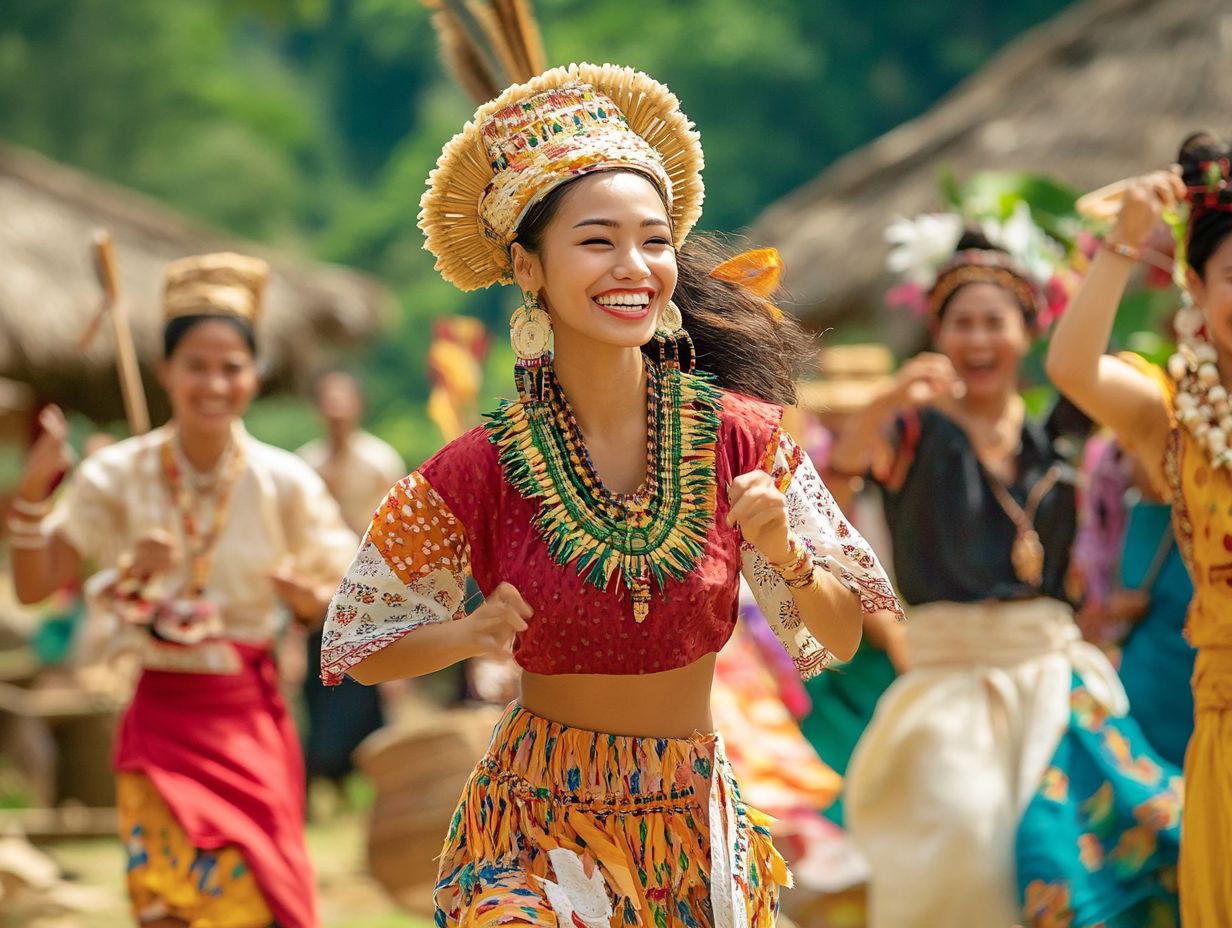
Overcoming cultural barriers and misunderstandings requires a commitment to cultural diversity and the cultivation of strong communication skills. This helps you navigate differences with both empathy and insight.
By actively listening and engaging in respectful dialogue, you can create an environment that nurtures understanding. Asking open-ended questions serves as a bridge. For instance, exploring different perceptions of punctuality can clarify intentions and avert potential offense. Acknowledging your own beliefs and attitudes shaped by your culture and remaining open to learning about others’ traditions fosters mutual respect.
Common misunderstandings, such as contrasting communication styles where directness is prized in some cultures while indirect approaches are preferred in others can be smoothed over through patient conversations. This approach paves the way for more harmonious interactions.
What Are Some Common Cultural Customs and Practices to Be Aware Of?
Being aware of common cultural customs and practices is vital for cultivating cultural awareness and shaping a global perspective. This enables you to engage empathetically with diverse communities.
For instance, recognizing different styles of greetings whether it’s a firm handshake, a bow, or a kiss on the cheek can significantly set the tone for your initial interactions.
Understanding dining etiquette, such as the importance of sharing food in certain cultures or the expectation that every bite is finished, can enhance the enjoyment and respectfulness of shared meals.
Social norms, including how to address someone of higher status or the subtleties of eye contact, play crucial roles in effective communication.
By grasping these practices, you not only enrich your interactions but also reduce the risk of unintentional offense. This paves the way for more meaningful relationships across cultures.
Documenting and sharing your cultural experiences sharpens your communication skills and encourages community involvement. This fosters dialogue and understanding among diverse groups.
You can employ various methods such as journaling, blogging, or engaging on social media platforms to effectively capture and articulate your unique cultural narratives. Each approach offers distinct advantages. Journaling provides an opportunity for deep personal reflection, while blogging can broaden your reach, amplifying voices that might otherwise go unheard. Social media serves as a vibrant arena for instant sharing and interaction, connecting you with people from diverse backgrounds.
These practices promote cultural awareness and invite others to step outside their comfort zones. This encourages exploration of the richness found in different traditions. Ultimately, this cultivates empathy and respect among varied communities, creating a more connected world.
What Are Some Tips for Being a Responsible and Respectful Cultural Traveler?
Being a responsible and respectful cultural traveler means embracing cultural diversity with open arms. Cultivating empathy and engaging in sensitivity training helps you navigate new environments thoughtfully and respectfully.
Your journey transcends merely visiting a destination; it requires a genuine effort to understand and appreciate the rich tapestry of traditions, beliefs, and practices that each culture offers. To enhance your experience, consider embracing local music and arts. Dive deep into the history and customs of the places you explore. Be eager to learn from locals and actively participate in cultural exchanges.
Supporting local businesses, from markets to artisans, not only bolsters the economy but also fosters a deeper connection with the community.
By approaching each experience with an open heart, you create avenues for meaningful interactions and insights. This leads to lasting memories and mutual respect between you and your hosts.
Frequently Asked Questions
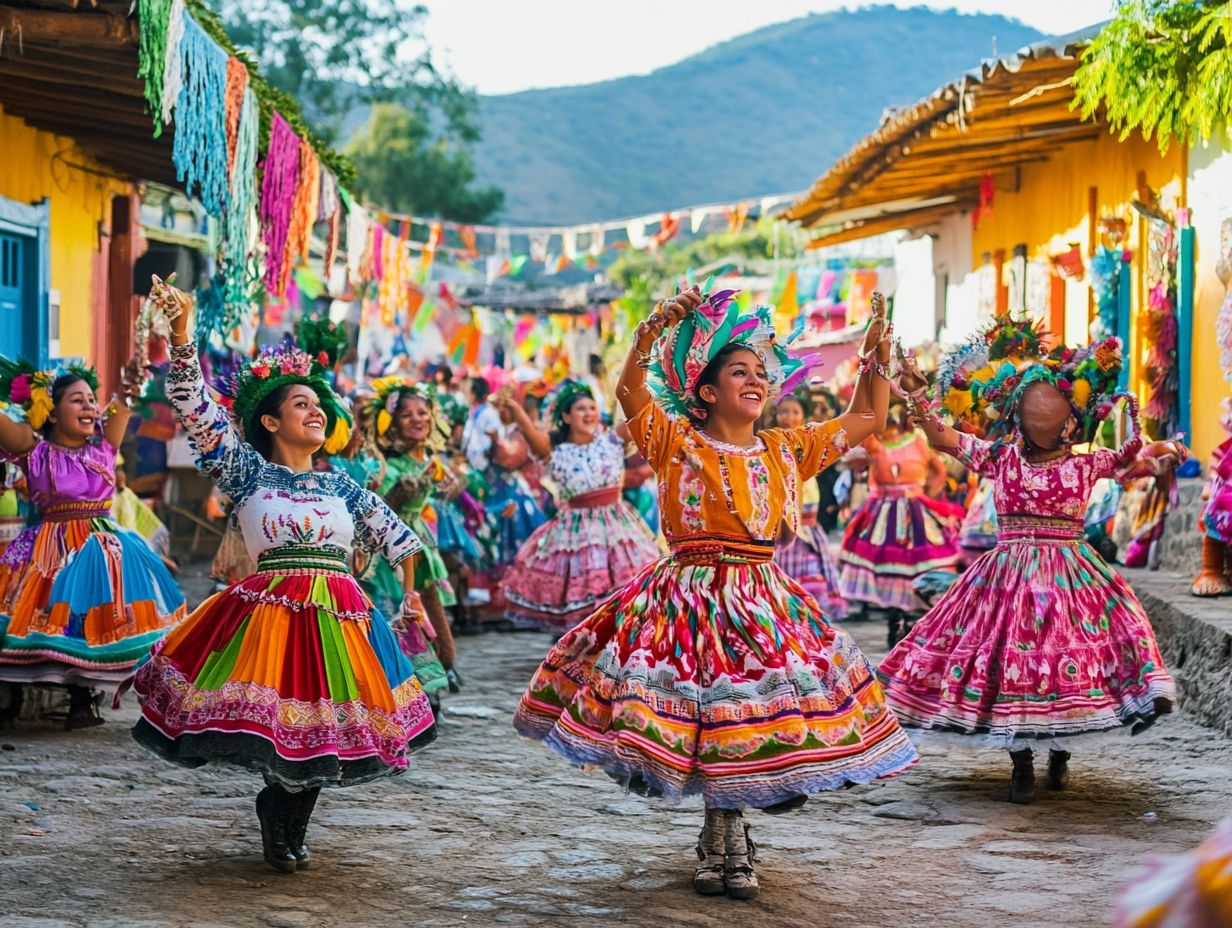
What are some activities I can do to enhance my cultural experience?
1. Attend local cultural events and festivals: This will allow you to immerse yourself in the traditions and customs of the local community and discover ways to celebrate multicultural events abroad.
2. Try traditional food: Food is a major part of any culture. Trying local dishes can give you a taste of the culture’s history and traditions.
3. Participate in cultural workshops: These practical activities allow you to learn new skills and gain a deeper understanding of the culture while exploring ways to enhance your cultural awareness.
4. Visit historical sites and landmarks: This can provide insight into the history and influences that have shaped the culture, helping you embrace the local lifestyle with 5 tips for embracing the local lifestyle.
5. Interact with locals: Discover their daily lives, traditions, and customs, and make new friends along the way!
How can attending local cultural events enhance my experience?
Attending local cultural events helps you witness and participate in traditional practices and celebrations unique to the culture. This experience can inspire you to explore creative ways to share your culture abroad, deepening your understanding and appreciation for the customs and beliefs of the community.
What kind of traditional food should I try to enhance my cultural experience?
It’s best to try a variety of dishes, including popular local delicacies special local dishes and those with cultural significance. Don’t miss out on trying street food it’s a must for an authentic experience!
Why should I participate in cultural workshops?
Cultural workshops provide a practical learning experience that can deepen your understanding of the culture. You may learn traditional crafts, cooking techniques, or other unique skills.
What can I gain from visiting historical sites and landmarks?
Visiting historical sites and landmarks can give you insight into the history and influences that have shaped the culture. You may also learn about important figures and events that significantly impacted the community.
How can interacting with locals enhance my cultural experience?
Interacting with locals allows you to gain a more personal perspective of the culture. You can learn about their daily lives and make new friends, giving you a more authentic experience compared to just visiting tourist attractions.
Start your cultural journey today!

